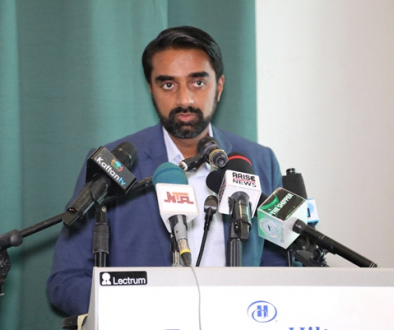Using Carrots and Sticks in the Fight Against Corruption
In 2008, the US Securities and Exchange Commission charged Siemens AG for engaging in Worldwide Bribery. Siemens paid just under $2bn to the US Department of Justice to settle the matter as against the $1.1bn it allegedly made in profits through corrupt deals. The company subsequently sacked and cleared out its top staff from board level all the way through executives to senior management and chose to put compliance first. In 2013, the Dow Jones Sustainability Index named Siemens for a second time in a row, the world’s most sustainable industrial company. It won similar awards from ROBECO SAM a Swiss Investment Group, which specializes in sustainability investing. Today, Siemens is considered the number one company in the world when it comes to corporate compliance issues.
As we see from the Siemens case, to be dissuasive, sanctions need to be stronger than the benefits obtained from partaking in corrupt acts (meaning the punishment should far outweigh the crime) so that corruption becomes too much of a business risk and is thus unprofitable. For sanctions to be an effective deterrent against corrupt corporate behaviour, the regulatory agencies need to be able to set adequate standards, monitor and gather compliance information effectively and then intervene appropriately to ensure behaviour modification occurs. It needs to happen reliably: meaning every business, everywhere, at every level of the economy should expect the law to have the capacity to catch up with them in this way eventually. This is what is needed to use sanctions appropriately; so, can a dependence on sanctions from the law alone help safeguard appropriate corporate behaviour in a place like Nigeria?
In Nigeria, despite the established immorality of corruption, businesses and their agents still participate in corrupt acts because they perceive that the benefits that will accrue from a corrupt act in Nigeria far outweigh the costs or they feel that the likelihood of the cost being meted out to them is slim, given Nigeria’s relatively weak regulatory systems. Is it possible to significantly increase the cost of corruption such that businesses choose to avoid it or alternatively, can we generate real business benefits for avoiding corruption? Can a complementary carrot and stick approach strengthen the business case for avoiding corruption?
Activists may cry hoarse about the wrongness of corruption, however it is only when countering corruption is linked to tangible business advantages that it is much more likely that business will actually comply especially in relatively weak regulatory zones. If sanctions and/or incentives were attached to corrupt behaviour, engaging in it would require a careful cost-benefit analysis. In most cases, the decision criterion would be; if the benefits exceed the costs, then take the action. Sanctions help increase the costs of corruption while incentives help increase the value of benefits.
Oando PLC is a $5bn Nigerian company listed on the Nigerian Stock Exchange. It is also listed on the Johannesburg Stock Exchange but met stiff opposition when it tried to list on the Toronto Stock Exchange. As a business from Nigeria, the perceived risk of corruption was high enough to make the Canadian authorities weary however when Oando PLC was able to establish with evidence not only that it was a committed, active member of the World Economic Forum’s Partnering Against Corruption Initiative; The UN Global Compact and The Convention on Business Integrity but that it also had demonstrable, world-class compliance systems and outsourced whistle blowing mechanisms in place, the Canadians were persuaded to take the risk and the company is now listed on the Toronto Stock Exchange – Oando knows the Toronto Stock Exchange is watching the company’s behaviour in every jurisdiction it operates in and its relationship with all other exchanges it is listed on. Now, Oando Plc’s business is heavily dependent on investors through the Johannesburg and Toronto Exchanges. If it dares violate their stance against corruption (or any other compliance issue) it will face severe market sanctions that could threaten the existence of the company. On the upside, the international confidence it enjoys will put it ahead of its competitors and increase its ability to raise the kind of capital it requires for its aggressive expansion plans. The carrots and sticks are evident in this case.
For companies operating in Nigeria who fall under the UK Bribery Act or the Foreign Corrupt Practices Act of the US, as we have seen in the case of Siemens, violations are dealt with severely. In the case of the UK Bribery Act, violations by agents, employees and associates can land individual executives in jail, beyond stiff fines. So, is it a surprise that a number of international firms who would like to play in Nigeria’s power and agricultural reforms are having to think about it very carefully despite the attractive macro economic pronouncements about the country?
SMEs, and small family owned enterprises do not realize how much business they are losing out on because they do not have the behavioural and performance profiles that would make them attractive for inclusion into the value-chains of major businesses in the Oil & Gas industry (who have to comply with Nigeria’s local Content laws); or in fast moving consumer goods by companies like Shoprite, KFC and so on (to mention a few sectors). At every level it is possible to set up carrots and sticks that should help realign business incentives and support compliance efforts in a zone of weak governance like Nigeria. If the sanctions and incentives are strong enough, they will convincingly make the business case against corruption. To be sure, businesses face dilemmas between behaving with integrity and meeting business objectives such as profitability. At times paying a bribe might be the difference between winning a contract or not. However, incentives and sanctions make the decision to act corruptly unsound, when all costs and benefits associated with a corrupt act are viewed holistically.
Soji Apampa is the co-founder of The Convention on Business Integrity, which sponsors the Corporate Governance Rating System in partnership with the Nigerian Stock Exchange. Email: soji.apampa@cbinigeria.com twitter: @sojapa



